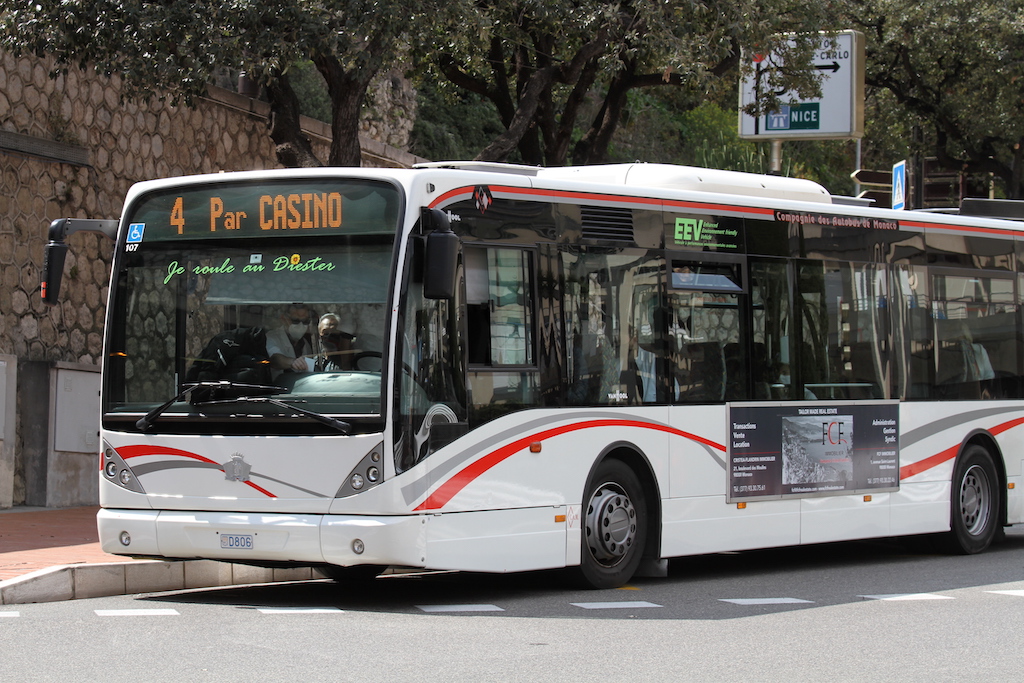Should we stop using the car for the school run in Monaco?

We asked for your opinion and the response was far from unanimous.
The question has already been asked, both in Monaco and in France: how can we reduce road traffic at peak times and therefore cut our greenhouse gas emissions? Preferring public transport or walking the children to school in the morning could be a first step, and was already mentioned by the National Council and the Prince’s Government at the start of the year.
And despite awareness-raising campaigns, personalised letters to parents and the addition of school buses at Saint-Roman and Jardin Exotique, elected representative Balthazar Seydoux said during a public meeting: “we see many cars with one parent driving and one child in the back. This is unacceptable and not appropriate in Monaco.” “All of us, whether we are National Councillors, teachers or the National Education authorities, must get the message across,” added Patrice Cellario, Minister of the Interior.
But what do the parents think? Around a hundred of you sent us your opinion on the subject.
“There’s a good service, the buses are very frequent”
For the vast majority of our readers, Monaco’s small size is argument enough for walking or taking the bus: “when you live in Monaco or very close to it, it is easy to get around on foot or by bus, no matter which neighbourhood you are starting from and where you want to go,” says Audrey, a mother herself, who also advocates banning motor vehicles from certain neighbourhoods, while pointing out that parking can be much more expensive than the bus.
“In our house, we don’t use the car to get to school/work. We go by bus or on foot. But what other options are there, apart from banning cars? There is a frequent bus service to all the schools, and there is a police officer out front for safety. It’s not a transport problem, nor a safety issue. It’s just a terrible force of habit,” comments Guillaume.
“My daughter, who is in secondary school, takes the bus every day. There’s a good service, the buses are very frequent. And if you use the Autobus de Monaco app, it’s great,” adds Olivier. “When my children were very young, I took them on foot and by bus to two different schools. Now my granddaughter takes the bus on her own. There is no need for the car in Monaco,” says Mélanie. “On foot, come rain, wind or snow,” jokes Jennifer.
“The little ones can’t go to school on their own”
Some people are nostalgic at the idea of walking to school. “We used to go on foot with our school friends and sometimes by bus, but very rarely. We preferred to walk and chat, support each other and sometimes even recite our lessons together! But that was then,” says Isabelle wistfully. “We used to walk to school morning, noon and night, and it didn’t kill us,” agrees Evelyne. “On foot! And we had a lot of fun on the way with our friends,” recalls Beatrice. “When my daughters were at school, we would always walk because the school was in the neighbourhood, and later on, they took the bus or walked to secondary school. We were already mindful of the environment,” Sylvie points out.
Other parents, however, prefer the car. Victoria, for example, is sceptical about the idea of the younger children taking public transport: “leave the children on their own? Really? (…) Some children need their parents. It is a question of age and maturity. Plus, we are all different with different constraints. What suits you might not suit other people.”
Safety is not the only issue raised by parents: “It’s not like Monaco is the only place where children are driven to school. Plus there’s a drop-off point. Seriously, the youngest ones can’t go to school alone, and when you work (and yes, some of us do work in Monaco), you don’t necessarily have time to walk,” Sylvie grumbles.
Even in two square kilometres, sometimes time is still too tight, as Rémy testifies: “when the school was nearby, we went on foot, but once my children went to Saint Maur, and I lived in Fontvieille, we took them by car! It would have taken us ages to get there and back by bus.”
What are the alternatives?
For some parents, like Laura, there should be more incentives for parents to use public transport: “If the bus was still free, that would help us. In the meantime, we’re on foot, even if the children don’t like it.” “A school bus pass costs 10 euros per year… get a grip, buses don’t run on seawater,” replied an anonymous Internet user.
And while buses or walking are not to everyone’s liking for the moment, some parents are still trying to avoid car pollution as much as possible. Using electric vehicles, carpooling or simply on two wheels.
“I take my 7 year old son either by bus or by car and I just have an electric Kia,” says Laurence. “It is not the type of engine that is up for debate, but the car itself with the congestion it causes. Today, many vehicles in cities are either electric or hybrid, and fewer and fewer are totally combustion. But there is still gridlock,” retorts Jean-Marc.
“By bus, except one Thursday when the schoolbag weighed a ton, but we managed to take turns that day with our neighbours to go to the Annonciade school ” says Isabelle. “Scooters for middle/high school children. It’s a must,” says Nikko.
Apart from the environmental issue, car travel poses another problem: according to a study that was published recently in the specialist journal The Lancet Global Health, children and adolescents are no longer sufficiently physically active, particularly since the Covid-19 pandemic.
According to the study, nearly half a billion new cases of major chronic diseases could be diagnosed by 2030 if the population does not become more active. As a reminder, the World Health Organisation (WHO) recommends that children aged five to 17 years practice an average of one hour of moderate to strenuous sport per day.













